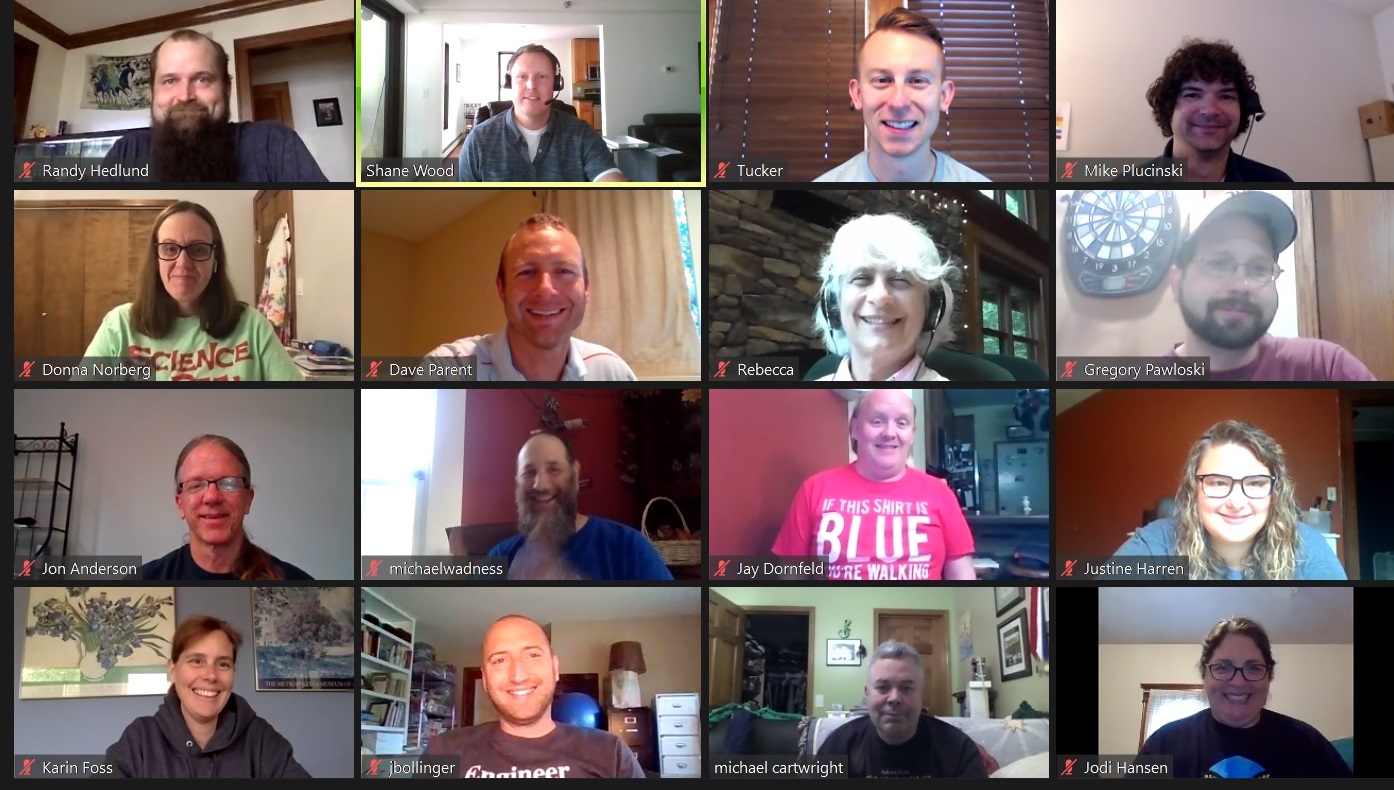Friday Flyer - September 25, 2020

Spotlight on the University of Minnesota QuarkNet Center
The Minnesota crew met via Zoom on the mornings of July 13-15 for their teacher workshop this year. For the first two half-days, QuarkNet Fellow and STEP UP Ambassador Michael Wadness (Boston center) joined the thirteen Minnesota teachers to co-facilitate a STEP UP workshop that focused on three new STEP UP-related activities in the DAP: Changing the Classroom, Careers in Physics, and Lessons from Lise Meitner. On the final day of the workshop, mentor Gregory Pawloski led an activity he prepared focusing on neutrino oscillations using data from the NOvA experiment. The workshop concluded with a tradition in the Minnesota center: a "share-a-thon" in which teachers share activities, tools, and strategies with one another. The focus of this year's share-a-thon was on ideas to engage students during distance or hybrid learning.


News from QuarkNet Central
Attention center leads: If you have not already done so, please submit your 2020 annual report ASAP to the QuarkNet website.
World Wide Data Day (W2D2) will take place on November 12 this year. We are hoping for more participation than ever, and we also expect a revised and, hopefully, very interesting measurement. More information will start to flow in October but, for now, mark your calendar. Check out the website; right now, it still shows W2D2-2019, but that will start to change soon.
The AAPT Winter Meeting 2021, January 9-12, will be online, making it a great opportunity to present your work without worrying about travel. Learn more about submitting an abstract, due October 2. Registration is now open with the deadline for reduced "Early Bird" rates on December 2.
QuarkNet Educational Discussions (QED) is an opportunity for QuarkNet teachers and staff to get together virtually a couple of times each month to share ideas, ask questions, and connect with QuarkNet colleagues. Our next meeting will take place on October 14, so be sure to mark your calendar!
The first circular for International Masterclasses 2021 is now available. Have a read to learn a bit of what is in the offing.

Physics Experiment Roundup
The most energetic ultra-high-energy cosmic rays (UHECRs) pack quite a punch, ~1020 eV, which is about the same energy as a tennis ball traveling at a speed of 100 km/h. The origin of these highly energetic subatomic particles has remained a mystery, though new results from the Pierre Auger Observatory indicate that UHECRs may come from energetic star factories known as starburst galaxies.
Allison Hall of Fermilab writes about work to speed up the CMS tracking algorithm in preparation for the High-Luminosity LHC. (Allison, by the way, was the instructor for QuarkNet Summer Session for Teachers this year.)
The Integrated Cryostat and Electronics Built for Experimental Research Goals (ICEBERG) serves as a "crystal ball" in many ways for DUNE (currently under construction) by testing future neutrino detector systems. The latest news: so far, so good.

Resources
The Perimeter Institute begins its 2020-21 Public Lecture Series on October 8, with The Quantum Physicist as Causal Detective, a free webcast that will stream on Wednesday, October 8, at 7 p.m. ET. The Subatomic Stories series continues with Don Lincoln's latest episode, What's smaller than quarks? From Physics, scientists and poets might have more in common than you think. And from QuantaMagazine: How Mathematical 'Hocus-Pocus' Saved Particle Physics.

Just for Fun
Q: What do you get when you add six acrobats to spinning platform? A: Centrifugal Centripetal Illusions! And now, for Act II, we have some "fluidsy" DIY experiments from the Physics Girl. (H/T Marge Bardeen)
Most of us know that bats use sonar (SOund Navigation and Ranging) to determine where objects are located, but how about using radar (RAdio Detection and Ranging) to see the bats?! (Credit: National Weather Service, Phoenix office)
QuarkNet Staff:
Mark Adams: adams@fnal.gov
Ken Cecire: kcecire@nd.edu
Spencer Pasero: spasero@fnal.gov
Shane Wood: swood5@nd.edu
